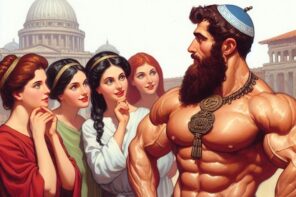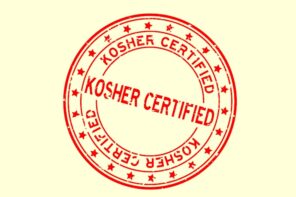Israel’s new president, Likud’s Reuven Rivlin, elected by the Knesset on Tuesday, once called Reform Judaism “idol worship.”
In 1989, Rivlin attended Shabbat services at two Reform synagogues in the United States. He later told an Israeli paper:
As a Jew who does not observe 613 commandments and perhaps not even 13 commandments, I was deeply shocked without any limit. I discovered what kind of worshiping group was in front of me, such that any connection between it and Judaism didn’t even approach reality. I felt as if I were in a church.
I was completely stunned. This is idol worship and not Judaism. Until now I thought Reform was a stream of Judaism, but after visiting two of their synagogues I am convinced that this is a completely new religion without any connection to Judaism. Total assimilation. Their prayer is like a completely Protestant ceremony.
Rabbi Eric Yoffie, past president of the Union for Reform Judaism, wrote before the election that Rivlin had refused to address him as rabbi, and called on Rivlin to address the idol worship comments.
In the Jerusalem Post, a Rivlin defender came rather lamely to his defense:
A source close to Rivlin responded that he “has always received Rabbi Yoffie respectfully and will continue to have a wonderful relationship with Diaspora Jews.”
The day after Rivlin was elected, Rabbi Rick Jacobs, the current president of the URJ, penned an open letter congratulating him, adding:
I would be less than candid, however, if I did not admit to some concern about your ability and willingness to work with the largest denomination in North American Jewish life, the Reform Movement, and our Israeli counterpart, the Israel Movement for Progressive Judaism. In 1989, you visited Temple Emanu-El, a Reform synagogue in New Jersey. In an interview after your visit you told a reporter from Yedioth Aharonot about your experience, where you disparaged, with stunning insensitivity, the dominant religiosity of North American Jewry, our Reform Movement.
I’m hoping that you’re ready to update your harsh and rather unenlightened views of our dynamic, serious and inspiring expression of Judaism that animates almost 900 congregations representing over a million and a half North American Jews.
Jacobs goes on to enumerate the ways Reform Jews love and are dedicated to Israel — evidence that in the face of escalting intolerant orthodoxy non-Orthodox American Jewish organizations feel they must prove that love in order to be critical of said escalating intolerant orthodoxy.
Before Rivlin was elected, Emily Hauser wrote that his views are commonplace in Israel:
Among the non-Orthodox, there’s an unfortunate, and very powerful, tendency to bow to the Orthodox and ultra-Orthodox as the arbiters of “real” Judaism — you’ll note that Israeli presidential candidate (and entirely secular Jew) Rubi Rivlin compared non-Orthodoxy to “idol worship” and has reportedly hesitated to call Reform and Conservative rabbis “rabbis.” I hate to tell my American Jewish friends how utterly typical Rivlin’s attitude is of broadly-held Israeli opinion, but here’s the truth: It’s very typical. The ultra-Orthodox control religious life in the Jewish State, and they’ve done an excellent job of convincing the Jewish public that everyone else is doing it wrong.
Rivlin’s troubling views don’t stop with his comments about non-Orthodox Jews; he is a proponent of one state in which, as Sigal Samuel writes, “Palestinians get the right to vote, but give up on the dream of national self-determination in the form of a sovereign Palestinian state.” Rivlin’s presidency, Samuel contends, will expose that he “is bringing into the Israeli political mainstream a one-state vision that has for years been cast as fringe. In so doing, he gives the lie to the notion that the two-state solution is the only solution Israel’s top brass can and will ever seriously consider.” (For more on how fringe is becoming mainstream, see mypiece today on a new effort to involve US lawmakers in a push to allow Jewish prayer at the Temple Mount.)
If all that has become mainstream and commonplace and typical, is that the Israel that American non-Orthodox Jews are being asked to love?




